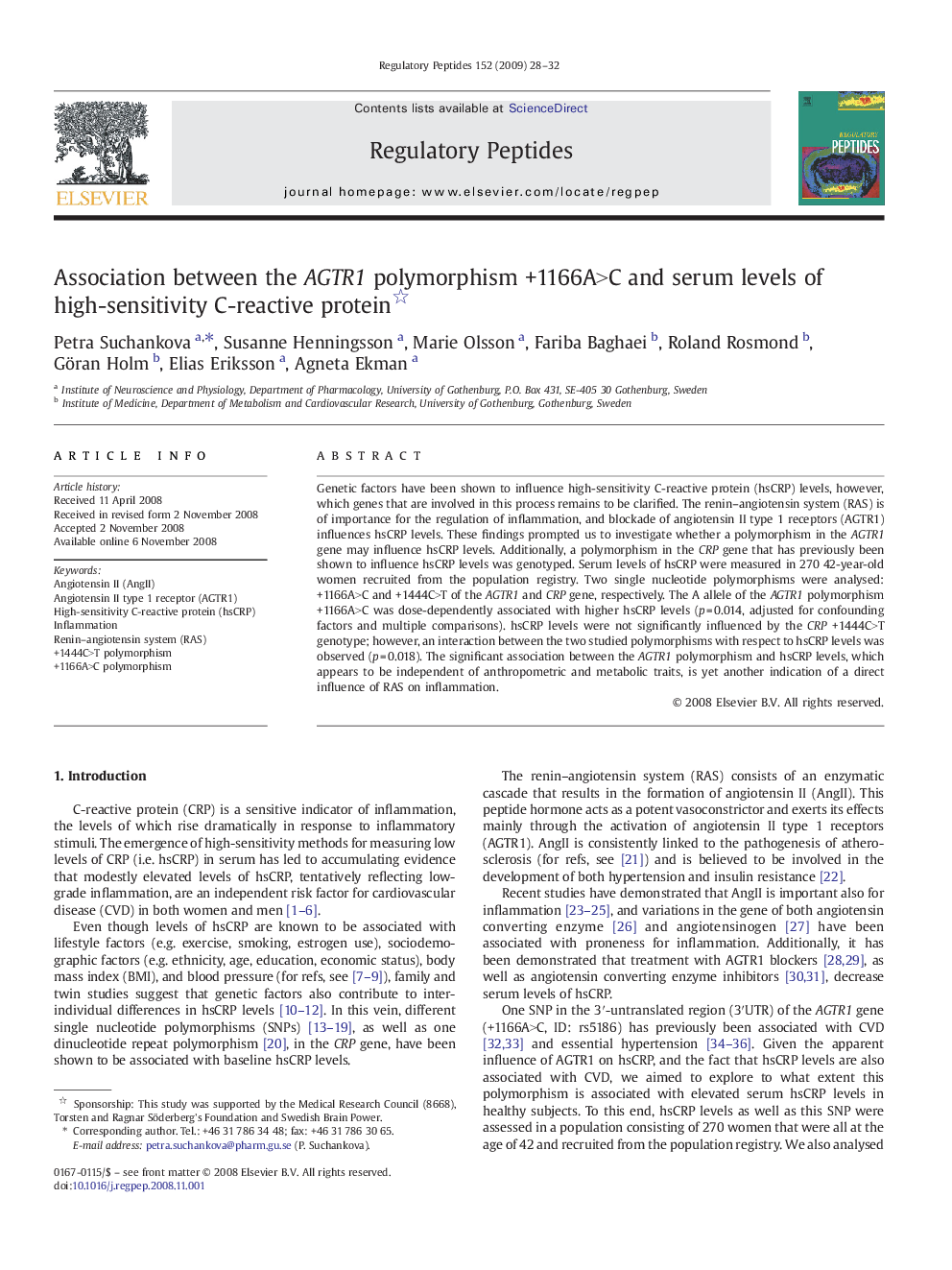| Article ID | Journal | Published Year | Pages | File Type |
|---|---|---|---|---|
| 2023065 | Regulatory Peptides | 2009 | 5 Pages |
Genetic factors have been shown to influence high-sensitivity C-reactive protein (hsCRP) levels, however, which genes that are involved in this process remains to be clarified. The renin–angiotensin system (RAS) is of importance for the regulation of inflammation, and blockade of angiotensin II type 1 receptors (AGTR1) influences hsCRP levels. These findings prompted us to investigate whether a polymorphism in the AGTR1 gene may influence hsCRP levels. Additionally, a polymorphism in the CRP gene that has previously been shown to influence hsCRP levels was genotyped. Serum levels of hsCRP were measured in 270 42-year-old women recruited from the population registry. Two single nucleotide polymorphisms were analysed: +1166A>C and +1444C>T of the AGTR1 and CRP gene, respectively. The A allele of the AGTR1 polymorphism +1166A>C was dose-dependently associated with higher hsCRP levels (p = 0.014, adjusted for confounding factors and multiple comparisons). hsCRP levels were not significantly influenced by the CRP +1444C>T genotype; however, an interaction between the two studied polymorphisms with respect to hsCRP levels was observed (p = 0.018). The significant association between the AGTR1 polymorphism and hsCRP levels, which appears to be independent of anthropometric and metabolic traits, is yet another indication of a direct influence of RAS on inflammation.
